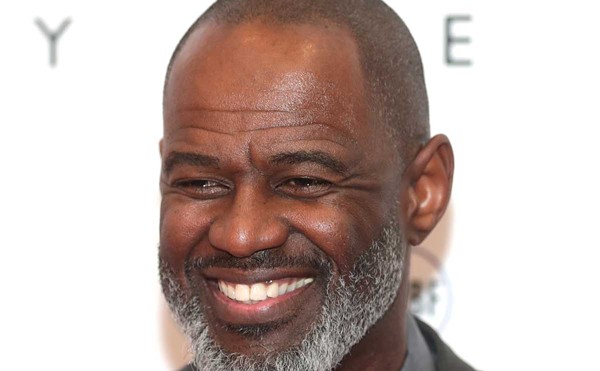Well, according to the polls, here’s how it stands. Most people didn’t watch much or any of the presidential debates. Those who did mainly thought Al Gore was smarter, knew more, had more experience and a better grasp of the issues, but didn’t like his “overbearing” style. True, in the last debate, those watching (including Laura Bush, if I can read faces) thought Bush Minor looked way too much like the rabbit in the road.
But, hey. Too late, for the media already had sold the stereotypes to those who watched little of the debates, and as of this writing, George W. Bush has pulled ahead. Which is rather baffling, even to ol’ cynical pants. True, we elected a know-nothing actor in 1980. But the country was felt to be in bad shape then.
We’re rocking now, but may be about to turn out the crew who presided over peace, prosperity and this roaring economy. Having survived senility in the 1980s, we may be on the brink of the first presidential election in which the key issue is who the voters would feel more comfortable with at a drunken Texas frat party. Hey — works for me. After all, I am a middle-aged white guy, and my wife is sorta blond, and unlikely to be personally affected if her freedom of choice is taken away.
Besides, a frat boy in the Oval Office would undoubtedly give me lots to write about, especially after he triggers off a vast recession by giving his pals enormous tax cuts, causing “Snappin’ Al” Greenspan to send the prime rate into the stratosphere.
Nevertheless, the coward in me would rather pass. But that’s all up to you voters now, isn’t it? Guess what. Bottom line, it really isn’t. Stand by for one of the dirtiest little secrets of the American political system. Though you may think you are voting, say, for Handsome Al or Dubya, you aren’t, and the Michigan ballot is a lie.
You are really voting for 18 guys and gals you never heard of. You may fuzzily remember something called the Electoral College? Well, this is it. Those who roll out of the booth thinking they just punched a card for Bush really voted for 18 people chosen by the Republican Party. Some states are honest enough to list them on the ballot. Ours isn’t. They tend to be party activists and contributors, congressmen’s wives, etc. That’s who will get elected Nov. 7 — not Bush or Gore. And they, not you, will elect the president, and not in November, either; they will go to their respective state capitals on Dec. 18 to do it.
Now, they all are supposed to support their party’s choice. But they don’t have to. They can do whatever they want — even vote for Geoffrey Fieger, or me, if they feel like it, with no threat of prison, fine, anything.
And some year, maybe even this year, this is going to get us into big trouble.
What it could mean this time is that the man taking the oath of office on Jan. 20, 2001 turns out, in the end, to be ... Dick Cheney.
How could that happen? Easily. Imagine this: According to some models the Electoral College vote may be very close. The way it works is if a “candidate” wins a state, his side automatically gets (with the exception of two tiny states) all its electoral votes.
What you really see on TV on election night is the results for slates of electors.
Let’s imagine that Al Gore squeaks across, with 271 electoral votes to Bush’s 267. (Who wins the overall popular vote couldn’t matter less.) You gotta get 270 to win.
But then, in December, two Gore electors from California vote for Ralph Nader instead. Think that couldn’t happen? Something like that happens as often as not.
Individual electors jumped ship in 1960, ‘68, ‘72, ‘76, and ‘88. For example, one pledged to Richard Nixon once voted for the Libertarian candidate. But nobody ever paid much attention because it never affected the outcome. Yet what if what I wrote happens — or, alternatively, if Bush wins by the same score, and two of his electors vote for Pat Buchanan?
According to the rules, the U.S. House of Representatives chooses the president. Except it might not be able to. Why? Each state casts one vote, and the winner needs a majority of the states — which neither may be able to get.
That’s because some states — Arkansas and Nevada, for example — have an equal number of Republican and Democratic representatives, and so probably would be deadlocked and couldn’t vote.
However, in such a case the new vice president is chosen in a straight vote of the Senate. Odds are the Republicans will still control the Senate in January, so Dick Cheney would win. (Naturally, if Democrats took control it would be Joe Lieberman.) And if the House stayed deadlocked, why, on Jan. 20, I guess whoever the new vice president is would have to step in, to face a messy constitutional crisis.
Sound far-fetched? So did Nixon appointing Gerald Ford and then quitting ... until it happened. Why don’t they change all this? If we don’t want the president elected by a direct popular vote, why not at least make the electoral vote automatic, and then have a runoff, or something, if nobody wins outright?
Aw, well, geez, that would take a constitutional amendment, man, and that’s a lot of work, both at the federal and state level. Why would our lawmakers do something like that when they need the time to raise money for their next campaign?
So, look the other way, hope the spent fuel rods in our system don’t leak through anytime soon, and we’ll be back next week brimming with optimism about the future!
Jack Lessenberry opines weekly for the Metro Times. E-mail to [email protected]




